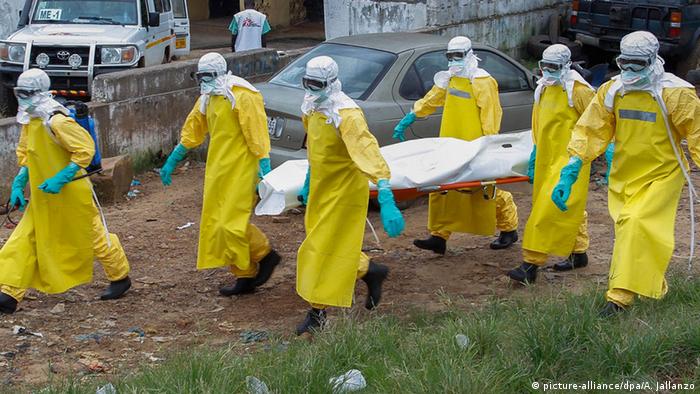Ebola in West Africa: the stakes rise
Wrapped into US President Barack Obama’s speech on the threat posed by ISIS in the Middle East was a commitment to send the US Army to West Africa to contain the Ebola epidemic.

Wrapped into US President Barack Obama’s speech on the threat posed by ISIS in the Middle East was a commitment to send the US Army to West Africa to contain the Ebola epidemic. “It is America – our scientists, our doctors, our know-how – that can help contain and cure the outbreak of Ebola,” he said.
The haemorrhagic fever, which has a fatality rate of between 50 and 90%, has spread from Guinea to Sierra Leone, Liberia, Democratic Republic of Congo and Nigeria. Over 2,000 people have died already and some experts believe that this could increase exponentially.
“The US Military is uniquely poised to help with this disease,” says Timothy Flanigan, an infectious disease researcher at Brown University, told NPR from Monrovia. “We’ve trained for it, we’ve got the logistics, we’ve got the support and we have the matériel.”
However, Obama has only allocated US$88 million for the mission — $58 million for production, development and research of Ebola therapies, and $30 million to the Centers for Disease Control and Prevention helping on the ground in Africa. How far will $30 million go?
Dr Flanigan was disheartened by the response. The military is planning to send only a $22 million, 25-bed field hospital. “It’s not going to make any dent in Ebola treatment for the people of Liberia,” he says. “It’s such a small number of beds and they may well be directed toward non-Liberians.”
Furthermore, containing the epidemic and treating the sick is immensely labour-intensive. The World Health Organization estimates that about 760 foreign volunteers will be needed over the next six months, when the epidemic may begin to wane. Another 12,900 workers must be recruited from the affected countries. It takes about 200 to 250 healthcare workers to treat for 80 Ebola patients at one centre. The ratio is so high partly because people can only work in the protective suits for an hour.
As Roll Call, a US politics site, put it, “the worst epidemic in the four-decade recorded history of the disease has made the challenge one of manpower rather than financial resources.”
Médecins Sans Frontières (Doctors Without Borders) is advertising frantically for international volunteers, in addition to the 210 it has already deployed. The US government’s response will help, says its spokesman, Jason Cone, but more is needed. Some health workers in the affected countries refuse to work unless they receive protective gear and their salaries.
Some experts are very pessimistic. Jonas Schmidt-Chanasit, of the Bernhard Nocht Institute for Tropical Medicine in Hamburg, told Deutsche Welle that the battle has already been lost in Liberia and Sierra Leone. He believes that the epidemic will burn itself out by infecting more or less everyone and half the population will die. (The WHO refused to comment on this.)
Given the scale of the problem, there is no possibility whatsoever of defeating this epidemic with drugs. Hence bioethical commentary on the issue has shifted away from the ethics of the “compassionate use” of experimental drugs to public health issues.
The observations of Udo Schuklenk, the Canada-based editor of Bioethics and Developing World Bioethics, about his colleagues were scathing:
“Did we stress that WHO’s choice of topic and the supposed urgency of its recommendation to provide access to experimental agents in Ebola regions amounted to pointless grandstanding in the face of a pandemic that requires a public health response, and not the tinkering with experimental agents? Some of us did, but it didn’t stop most of us from entertaining questions on the ethics of who should get experimental agents, whether it was ok that white religious activists with a health care background were prioritized over local dying health workers, and other reportedly important questions. In the rush to be seen to do something the WHO managed to convene said meeting without a single representative from a country affected directly by Ebola.”
https://www.bioedge.org/images/2008images/TH_ebola_3434343.jpg
Creative commons
Ebola
public health
Udo Schuklenk
- Queensland legalises ‘assisted dying’ - September 19, 2021
- Is abortion a global public health emergency? - April 11, 2021
- Dutch doctors cleared to euthanise dementia patients who have advance directives - November 22, 2020
